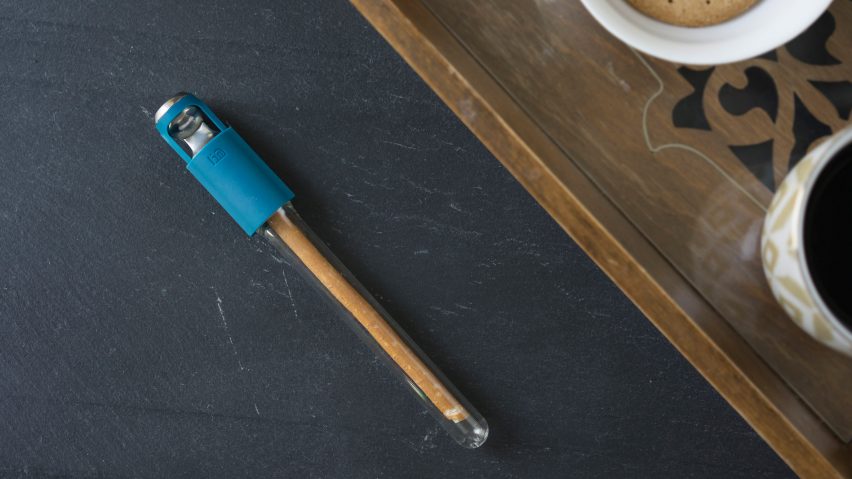This test-tube-like packaging was designed by New York-based Leadoff Studio to modernise the experience of cleaning your teeth with a stick.
The designers were tasked with creating the functional packaging design for THIS Toothbrush – a brand that produces traditional miswak sticks, which are used by biting and peeling the bark and fibres of the wood.
Their response was a test-tube-like case that also incorporates a stainless steel cutter. This helps users to reduce the amount of mess made when using the stick, and also makes it easier to cut through the fibres.
The bottom blade is shaped like a cone, so the twig can be pushed into it to create bristles. After use, the end of the stick can be cut away and stored in the tube, which has perforations to prevent mould.
"We were very influenced by Arabesque styling and Islamic architecture," said Leadoff Studio's Jordan Diatlo.
"The pointed arch shape used in archways and vaults in Islamic architecture became an aesthetic detail on the sides of the case, and is subtly repeated into the top of the test tube, the blade profiles, and negative space around the blades."
The studio also incorporated a locking mechanism, so blades are kept closed once the cap is on, preventing users from accidentally injuring themselves.
Leadoff Studio purposefully developed stripped-back packaging that would offer a contrast to the "flashy graphics" of other toothbrushes.
To reflect the use of miswak sticks across the Arab-speaking world, the studio embossed the THIS logo in both Arabic and English, and designed a triangular paper pack that has room for both languages.
THIS toothbrush was first developed by New York's School of Visual Arts graduate Leen Sadder. The packaging was chosen as a finalist in the 2017 Dieline Awards.
Other more futuristic takes on the toothbrush include an electric device that collects data about its user's brushing habits, and a brush that cleans teeth with nanotech ions instead of toothpaste.

